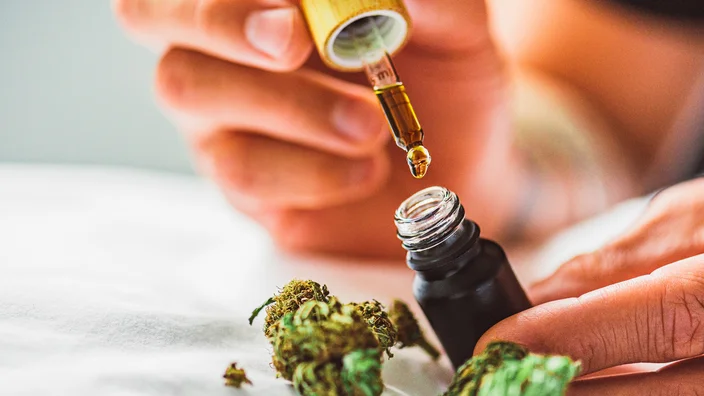CBD, or cannabidiol, has gained significant attention in recent years for its potential therapeutic properties. Extracted from the cannabis plant, CBD in Canada is a non-psychoactive compound that interacts with the endocannabinoid system in the human body. While CBD has shown promise in addressing various health issues, its use during pregnancy raises questions and concerns. This article aims to explore the basics of CBD and delve into the existing knowledge regarding its potential benefits and risks during pregnancy.
Cannabis-infused skincare may offer a natural option for pain relief during pregnancy. Some individuals explore products containing cannabinoids like CBD for their potential anti-inflammatory properties, addressing discomfort associated with pregnancy. However, caution and consultation with healthcare professionals are crucial due to limited research on cannabis use during this critical period.

The Basics of CBD
1. Definition and Sources
CBD, one of over a hundred cannabinoids found in the cannabis plant, is typically derived from hemp. Unlike its counterpart THC (tetrahydrocannabinol), CBD does not induce a “high” or alter consciousness. CBD products, ranging from oils to capsules and edibles, have become widely available in markets due to their purported health benefits.
2. Mechanism of Action
The endocannabinoid system, a complex network of receptors and neurotransmitters, plays a crucial role in regulating various physiological processes. CBD interacts with this system, primarily by influencing CB1 and CB2 receptors. This interaction is believed to contribute to the potential therapeutic effects of CBD, including its anti-inflammatory, analgesic, and anxiolytic properties.
3. Forms of CBD
CBD products come in various forms, such as oils, tinctures, capsules, edibles, and topicals. Each form has its unique characteristics, affecting the onset and duration of CBD’s effects. Understanding the differences between these forms is essential for users seeking specific outcomes.
Potential Benefits of CBD During Pregnancy
Alleviating Morning Sickness
One area of interest in CBD research is its potential to alleviate morning sickness, a common challenge for pregnant individuals. Some studies suggest that CBD’s anti-nausea properties may provide relief, although research in this area is still in its early stages.
2. Stress Reduction
Pregnancy often brings heightened stress levels due to physical and emotional changes. CBD’s interaction with the endocannabinoid system may contribute to stress reduction, potentially benefiting maternal well-being.
3. Sleep Support
Quality sleep is crucial during pregnancy, yet many expectant mothers face sleep disturbances. CBD’s calming effects and potential to regulate sleep patterns make it an area of exploration for addressing sleep challenges during pregnancy.
4. Pain Management
CBD’s anti-inflammatory and analgesic properties have led some to explore its potential for managing pregnancy-related pain, such as back pain or discomfort associated with the expanding uterus.
5. Anxiety Relief
The emotional toll of pregnancy may contribute to anxiety in some individuals. CBD’s anxiolytic effects are being investigated for their potential role in managing anxiety symptoms during pregnancy.

Safety Considerations and Potential Risks
1. Lack of Comprehensive Research
While preliminary studies suggest potential benefits, the overall body of research on CBD use during pregnancy is limited. This lack of comprehensive data makes it challenging to draw firm conclusions about the safety and efficacy of CBD in this context.
2. Placental Transfer and Fetal Development
One concern is the potential transfer of cannabinoids, including CBD, across the placenta. The impact of cannabinoids on fetal development is not well understood, and caution is warranted in the absence of conclusive evidence.
3. Potential for Contaminants
The unregulated nature of the CBD market raises concerns about product quality. Contaminants such as pesticides, heavy metals, or THC may be present in some CBD products, posing potential risks to both the pregnant individual and the developing fetus.
4. Interaction with Medications
CBD may interact with certain medications commonly prescribed during pregnancy. It is crucial for pregnant individuals to consult with their healthcare providers before incorporating CBD into their routine to avoid potential adverse interactions.
Regulatory Landscape and Legal Considerations
1. Legal Status
The legal status of CBD varies globally and within different jurisdictions. It is essential for pregnant individuals to be aware of the legal landscape surrounding CBD in their region and adhere to regulations.
2. Lack of Regulation in the Industry
The CBD industry’s lack of consistent regulation poses challenges for consumers, particularly pregnant individuals, in ensuring product quality and safety. Awareness of reputable brands and third-party testing can mitigate some of these concerns.
Consulting with Healthcare Professionals
1. Importance of Professional Guidance
Given the limited research on CBD and pregnancy, consulting with healthcare professionals is paramount. Obstetricians and other healthcare providers can offer personalized advice based on an individual’s health status and specific circumstances.
2. Healthcare Provider Education
There is a need for healthcare providers to stay informed about CBD, its potential benefits, and associated risks. This knowledge equips them to guide their patients effectively and offer evidence-based recommendations.
Conclusion and Future Research Directions
1. Summary of Key Points
In summary, the use of CBD during pregnancy is a complex and evolving topic. While some potential benefits have been identified, the lack of comprehensive research necessitates caution.
2. Call for Further Research
The field of CBD research, particularly its effects during pregnancy, requires more robust and well-designed studies. Future research should focus on understanding the mechanisms of action, potential risks, and long-term outcomes associated with CBD use in pregnant individuals.
3. Empowering Informed Choices
Ultimately, individuals considering CBD during pregnancy should make informed choices, weighing potential benefits against the current uncertainties and risks. Open communication with healthcare providers and adherence to safety guidelines are essential elements in navigating this evolving landscape.
Conclusion
while the potential benefits of CBD during pregnancy are intriguing, the existing knowledge base is not sufficient to provide definitive recommendations. Pregnant individuals are encouraged to prioritize their health and the health of their developing fetus by seeking guidance from healthcare professionals and staying informed about the evolving landscape of CBD research.
